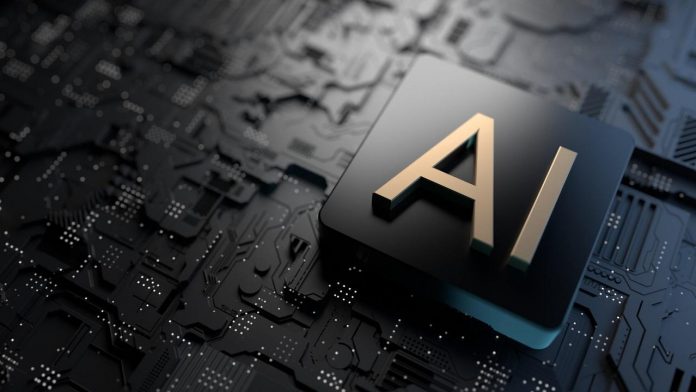We are living through a revolution. It’s not one of steam engines or electricity but of algorithms, data, and boundless possibilities. Artificial Intelligence (AI) has transcended the realm of science fiction to become a force reshaping industries, societies, and the very essence of what it means to be human. It’s not just a tool; it’s a mirror reflecting our ambitions, creativity, and ethical dilemmas.
The Ubiquity of AI
AI is no longer confined to laboratories or futuristic speculation—it’s in our pockets, our homes, and our workplaces. Every time we ask Siri for directions, stream a recommended movie on Netflix, or rely on Google Translate, we interact with AI. But these conveniences are just the tip of the iceberg.
In healthcare, AI diagnoses diseases with unprecedented accuracy, predicting outcomes and personalizing treatments. In agriculture, AI-powered drones monitor crop health, ensuring food security for a growing population. And in education, AI tailors learning experiences to individual needs, breaking barriers of access and equity.
AI is not just a tool; it’s an ecosystem that intertwines with every aspect of modern life, quietly revolutionizing the way we live, work, and connect.
The Promise of AI
At its heart, AI is a story of potential. Imagine a world where self-driving cars eliminate traffic fatalities, where AI assistants empower doctors to focus more on patients than paperwork, and where energy grids become so intelligent they eradicate waste.
AI has the power to address humanity’s grand challenges:
Climate change: By optimizing energy consumption and enabling smarter resource management.
Global health: By accelerating drug discovery and ensuring early detection of diseases.
Education for all: By democratizing knowledge and creating customized learning paths for students worldwide.
This is the promise of AI—a future where technology amplifies human ingenuity to solve problems that once seemed insurmountable.
The Ethical Crossroads
But with great power comes great responsibility. AI’s meteoric rise has also raised profound ethical questions. Who controls the algorithms that shape our lives? How do we prevent bias in AI systems from perpetuating inequality? And as automation transforms industries, what happens to the workers displaced by machines?
These aren’t just theoretical concerns. A hiring algorithm might inadvertently favor certain demographics over others, reflecting the biases in the data it was trained on. Autonomous weapons powered by AI present chilling scenarios in warfare. And as AI becomes capable of generating human-like text and images, misinformation could reach an entirely new level of sophistication.
The challenge lies in balancing innovation with regulation, ensuring that AI serves humanity’s collective good rather than narrow interests. It’s a delicate dance that requires transparency, accountability, and a commitment to ethical principles.
The Human-AI Collaboration
What makes AI truly remarkable is not its ability to replace us but to augment us. The best outcomes arise not when AI works independently but when humans and machines collaborate.
Consider AI as a co-pilot for creativity, helping artists generate new forms of expression or aiding scientists in uncovering patterns too complex for the human brain. In this sense, AI doesn’t diminish our humanity—it enhances it.
This partnership also challenges us to redefine what it means to be human. As AI takes over repetitive and analytical tasks, it frees us to focus on what we do best: imagination, empathy, and innovation.
Preparing for an AI-Powered Future
The question is not whether AI will shape our future—it already is. The real question is how we, as individuals and societies, will navigate this transformation.
1. Embrace Lifelong Learning: As AI changes industries, adaptability will be key. Building skills in creativity, critical thinking, and emotional intelligence will complement what AI can’t replicate.
2. Engage in Ethical Dialogue: AI’s impact extends beyond technologists. Policymakers, ethicists, educators, and everyday citizens must participate in shaping its trajectory.
3. Celebrate Human Uniqueness: While AI excels at tasks requiring logic and speed, it cannot replicate the depth of human connection, storytelling, or moral reasoning.
A Reflection of Ourselves
At its core, AI is not just about machines—it’s about us. The algorithms we design reflect our values, our biases, and our aspirations. It’s a technology that holds up a mirror to humanity, forcing us to confront questions about progress, equity, and what kind of future we want to build.
Will AI lead us to a world of abundance and harmony, or one of division and dependence? The answer lies not in the technology itself but in how we choose to wield it.
Conclusion: The Beginning of the Journey
The age of AI is not a destination but the beginning of a journey—a journey that will redefine how we live, work, and dream. It’s an era of immense possibility, but it demands vision, responsibility, and collective action.
AI is a reminder that progress is not inevitable—it’s a choice. And as we stand at this crossroads, the choices we make today will echo through generations. Let’s choose wisely. Let’s choose a future where AI is not just intelligent but also ethical, inclusive, and profoundly human.






